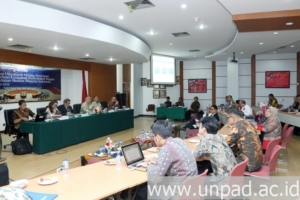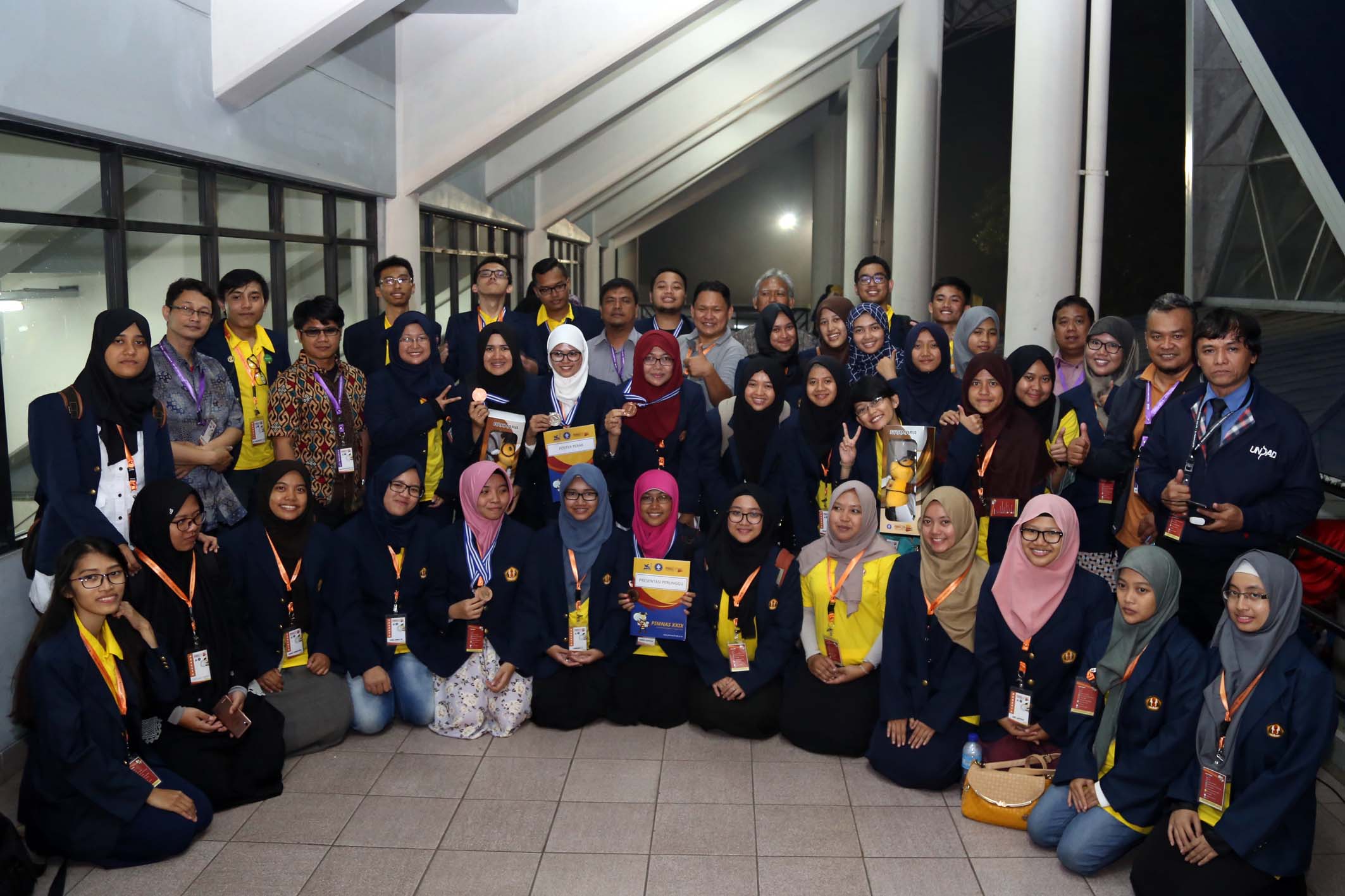[unpad.ac.id, 23/7/2018] Director General of Law and International Agreement of the Ministry of Foreign Affairs of the Republic of Indonesia, Dr. iur. Damos Dumoli Agusman, M.A., opened the role of Faculty of Law Universitas Padjadjaran (FH Unpad) to develop academic paper related to the implementation of UN Security Council (UNSC) Resolution into the National Law of Indonesia.

“If FH (The Faculty of Law) Unpad took over (for the preparation of recommendations) academic paper, you are welcome,” said Dr. Damos in the “Focus Group Discussion on Implementation of UNSC Resolution into Indonesian National Law” at the Library Auditorium of Mochtar Kusumaatmadja FH Unpad, Jalan Dipati Ukur No. 35, Bandung, Monday (23/7).
Dr. Damos said, after the election of Indonesia as a non-permanent member of the UNSC 2019/2020 early June, we have been facing a number of challenges which are laid in the inconsistency between the Security Council Resolution and the national legal system.
The UNSC Resolution is not necessarily executable in our national law. In fact, the decision of the UNSC can be binding in each country without specific consent. In addition, the current UNSC decision is not only implements the organs of the state, but has to the citizens, an exclusive element in national law.
Dr. Damos continued, the basic problem of this, is the absence of a law that can legally bind national law to international law which in turn makes Indonesia unable to follow the decision of UNSC Resolution.
“We will be safer if there is a law,” he said.
Through the discussion held on the cooperation of the Ministry of Foreign Affairs of the Republic of Indonesia with the Faculty of Law of Unpad, Dr. Damos expected any attempt to formulate the recommendation of academic paper, either in the form of Draft Law (Draft), Draft Government Regulation, or Presidential Government Draft related to the harmonization of the challenge.
The choice of the Faculty of Law of Unpad as a Foreign Ministry partner is not without reason. Dr. Damos said, FH Unpad has a good track record in international law contestation. “FH Unpad has an internationally recognized legal figure, Prof. Mochtar Kusumaatmadja,” said Dr. Damos who is also alumnus of FH Unpad.
Other than Dr. Damos, this discussion presented other speakers, namely: Director of International Security and Disarmament of the Ministry of Foreign Affairs of the Republic of Indonesia, Grata Endah Werdaningtyas, Deputy Chief of Special Detachment 88 Police Brigadier General Pol. Eddy Hartono, Chief Justice of the Supreme Court. Suhardi, and Lecturer of FH Unpad Dr. Idris, M.A. *
Report by Arief Maulana | Translated by dfa

